Posted on June 18, 2009
“A” is for Advice (and maybe Arrogance)
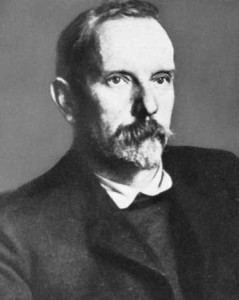 “Writing is an occupation in which you have to keep proving your talent to those who have none.”
“Writing is an occupation in which you have to keep proving your talent to those who have none.”
– Jules Renard
Everyone thinks they can be a writer. All it takes is a little time, a little patience, and some skill behind a keyboard, right? Wrong. I don’t think I’ve ever met anyone who hasn’t, at some point, told me that they’ve had the Greatest Idea for a story. It’ll be a bestseller and everybody will love it, just as soon as they get around to writing it. I’ve met other people who pride themselves on being Idea Men (or Women), and who strut about with their heads held high and chests puffed out to Nebraska, because they think they are the smartest people in the world. They are utterly incapable of doing any actual work, mind you – but they’re absolutely filled with ideas. Ideas that they then pass on to other people to wrestle into reality.
I suppose that anyone who’s actually been able to forge a career out of not doing any work might very well be the smartest person in the world – but I’ve no truck with that sort. They’re loathsome animals, devoid of any character or passion. Bottomfeeders of the lowest echelon, they excel at nothing other than motivating their subordinates into doing what they could never accomplish on their best days – and they get paid well for it. Better than the poor sods actually doing the work, anyway.
 So what do you do when you’re convinced that you want to be one of the few, the proud, the penniless? What do you do when you realize that all you want to do in this life is communicate? To write. Well, in the past, all you did was sit down behind a typewriter and set to work. You pecked out a manuscript on the keyboard, then wrote up a query letter and sent the whole package off to a publisher. Then, you waited. And waited. And waited some more. Inevitably, you’d be rejected and move on to the next publisher. And the next one. And the next one. And the next one, until you either realized that you had no marketable talent to begin with and gave up, or you persevered until you finally found a publisher willing to print your hard work. And that was it; that was the game. But you know what? It still is, even though most people today see the World Wide Web as a clean and quick shortcut through the thickets and the thorns.
So what do you do when you’re convinced that you want to be one of the few, the proud, the penniless? What do you do when you realize that all you want to do in this life is communicate? To write. Well, in the past, all you did was sit down behind a typewriter and set to work. You pecked out a manuscript on the keyboard, then wrote up a query letter and sent the whole package off to a publisher. Then, you waited. And waited. And waited some more. Inevitably, you’d be rejected and move on to the next publisher. And the next one. And the next one. And the next one, until you either realized that you had no marketable talent to begin with and gave up, or you persevered until you finally found a publisher willing to print your hard work. And that was it; that was the game. But you know what? It still is, even though most people today see the World Wide Web as a clean and quick shortcut through the thickets and the thorns.
With the rise of the Internet, people have shifted both their expectations of what a writing career will get them, along with their understanding of how the system works. Today, it’s all about getting noticed. People equate recognition with fame, and fame with money, and money with success. So, most netizens naturally assume that they need to become as recognized as possible, as quickly as possible. Blogs are started. Linkbacks are requested. And, with communities joined, search engine optimizations optimized, and circle-jerk critiques and commentaries given and received, a blog becomes popular. Usually, it’s with a niche audience, but the Internet has proven that even the smallest niches can be lucrative – if you market yourself correctly.
So people place ads on their blogs and hope to cash in on their relative success, only to face bitter disappointment when they find out that no one actually bothers clicking the damned things. Still, thousands of people from all over the world are reading your blog every week, so that must mean it’s good, right? Surely there must be some way to transform this insignificant exposure into fame, cash, and career, right? Right? Maybe, you reason, if you work at it long enough and hard enough, you’ll Get Noticed by some mysterious Power-That-Is, who will instantly recognize your talent from the sheer power of the exalted magnificence of your words, right? After all, your command of the language is so considerable, so profound that your phrases must surely leap off the screen and dive directly into your reader’s eyeballs, where they skip the trip down through the optic nerve, and don’t even consider stopping for tea and conversation in the dining room of the neocortex. No, your words are far too awesome for any of that sort of banal mundanity. Aren’t they?
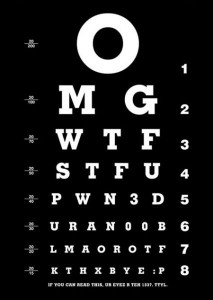 Biology is something that happens to other people, not to you. And, while everyone else is busy trying to get their words shoved into a publisher’s brain, your masterwork won’t have to take the painful and tedious biological stroll along the crowded streets of his optic nerve, or be lined up and sorted out at the crossroads of his optic chiasm. Your majestic verbiage gets a golden ticket and a free pass to skip the slicing and dicing of his lateral geniculate nuclei, and they don’t even bother showing their faces in his occipital cortex, where they’d be lumped in with everyone else’s plebeian locutions before they’re ever finally seen. No, you’re special. You’re talented. You’re awesome!
Biology is something that happens to other people, not to you. And, while everyone else is busy trying to get their words shoved into a publisher’s brain, your masterwork won’t have to take the painful and tedious biological stroll along the crowded streets of his optic nerve, or be lined up and sorted out at the crossroads of his optic chiasm. Your majestic verbiage gets a golden ticket and a free pass to skip the slicing and dicing of his lateral geniculate nuclei, and they don’t even bother showing their faces in his occipital cortex, where they’d be lumped in with everyone else’s plebeian locutions before they’re ever finally seen. No, you’re special. You’re talented. You’re awesome!
Except that you aren’t. Really, if you were that talented and that skilled at the arcane and mysterious craft of writing, you’d already be getting paid for it. You wouldn’t be on the Internet, giving it away for free. Or, maybe you would – but then you’re just perpetuating a problem that will never find a solution until the halfwitted amateurs stop giving it all away for nothing. Now, I’m not saying that there’s anything wrong with blogging. I blog, for pity’s sake. This a blog that you’re reading right now. I’m not about to call myself an idiot, am I?
Of course not. But then again, I don’t expect anything to ever come from this blog. I come here to digest or to purge, not to sell myself or my talent. I started Coquetting Tarradiddles on a lark, as something akin to a verb-laced dagger that I could stick into the black heart of my ex-wife and smile as I twisted it with an adjective here, or an adverb there. It’s grown and matured into something quite different than its origins would have suggested, but I never for once thought that my amazing use of the predicate would land me a seat at the head of the table in the promised land, because…well, because that would just be naive. Naive, and stupid.
No, I have no illusions about how things work. I don’t care about my popularity or non-popularity on the Internet, where everyone is so busy giving everyone else reach-arounds and complimentary verbal blowjobs that it seems like any schmuck with a keyboard and a modem can become a really big fish in a tiny digital pond, almost overnight. The sad trick is that the pond seems a lot bigger than it really is. Sure the Internet is vast and limitless, and to stand out and to stand apart amidst its detritus and flotsam is no small accomplishment – but it’s how you earn your fame that’s important. It’s easy to join a bunch of communities, or go to a lot of other blogs and post links, or ask for linkbacks. It requires very little effort or talent to simply visit popular blogs and leave nice comments, hoping to leech some of their traffic, or join communities filled with other bloggers who want to visit your site, if you’ll visit theirs. It’s how popular blogs are built.
The problem is, publishers know these tricks. If you want to take your blog and have it printed in a really real book, on really real paper, then you’re either going to have to do it yourself or let your talent outweigh your need for approval. No one is going to fund the editing, printing, binding, distribution, and publicizing of any material that stinks, regardless of how popular your blog might be with Focus Group X or Demographic Y. Publishers don’t like to reprint existing material to begin with, and that goes double and triple for websites. Why, they reason, would anyone want to pay money to purchase something that they can get for free on the World Wide Web?
Of course, there are some ventures in the “New Media” that do reprint existing web material, but there’s usually a steep price involved. You see, the worst part about blogging is the massive amount of money that’s not in it. At best, your blog might be picked up by some larger umbrella site, but all they’re likely to offer you is additional traffic. A way to feed that need for moderate fame that drives so many bloggers to write. The most successful of these New Media sites is The Huffington Post – and, by all accounts, it’s a wild success. Arianna Huffington is a bright lady. She’s a witty, sharp as tacks, and tough as nails journalist who saw the writing on the wall and decided to cultivate a career outside of the traditional (read: Dying) newspaper industry. She started The Huffington Post and, within a very short amount of time, flattered enough bloggers to come write for her – FOR FREE – that she could probably retire now and walk away to live in obscene luxury for the rest of her life.
 I don’t blame Arianna on the whole, although part of me does. That part nags at the back of my mind, telling me that she is helping to sustain a backwards system that rewards only those who are least responsible for the site’s success. None of Arianna’s bloggers are paid a single red cent for their work. Not one. Still, all she did was provide a service to stroke the needy egos of a few bloggers, and they came in droves and thanked her for the honor. Sure, if you’re part of the site, you get a significant boost in your traffic – but, since the fundamental economic model of the Web is designed to Screw The Writer, all those visitors reading your content and not clicking your ads does nothing to change your bottom line. A few hundred thousand more people not clicking ads isn’t really much different from a few dozen not clicking them. Zero plus zero is…
I don’t blame Arianna on the whole, although part of me does. That part nags at the back of my mind, telling me that she is helping to sustain a backwards system that rewards only those who are least responsible for the site’s success. None of Arianna’s bloggers are paid a single red cent for their work. Not one. Still, all she did was provide a service to stroke the needy egos of a few bloggers, and they came in droves and thanked her for the honor. Sure, if you’re part of the site, you get a significant boost in your traffic – but, since the fundamental economic model of the Web is designed to Screw The Writer, all those visitors reading your content and not clicking your ads does nothing to change your bottom line. A few hundred thousand more people not clicking ads isn’t really much different from a few dozen not clicking them. Zero plus zero is…
And that’s the real meat of the problem with blogging, or web sites, or the Internet in general. Everyone expects everything for free – even the advertisers. In any other medium, ad revenue is based off of a simple measurement of exposure. How many people subscribe to your newspaper? What are the ratings points and share of your television show? The more people who will be seeing the ad, the more the advertiser pays. It’s simple, it’s direct, and it’s fair. (Well, all things considered…)
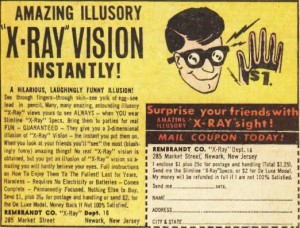 But advertising on the Internet doesn’t work like that. Not for the vast majority of advertisements, anyway. Most sites use Adsense (or a similar system), which rewards you based only off of how many people click the various ads. It doesn’t matter that several hundred thousand people a day may see the ads on your site; all that matters is the half dozen or so who actually bother to click them. Would this model have sustained American television or newspapers or magazines though the years? No, it would not have. No one expects Johnny Reader to come walking into Sears to buy a toaster and credit the ad he read in The Daily Sun for the purchase, and so no advertiser pays The Sun based of off toaster sales. They pay off of exposure. Readership. Viewership. Ratings. On the Internet, however, you gotta sell them toasters, boy! AND YOU GOTTA PROVE IT, TOO!
But advertising on the Internet doesn’t work like that. Not for the vast majority of advertisements, anyway. Most sites use Adsense (or a similar system), which rewards you based only off of how many people click the various ads. It doesn’t matter that several hundred thousand people a day may see the ads on your site; all that matters is the half dozen or so who actually bother to click them. Would this model have sustained American television or newspapers or magazines though the years? No, it would not have. No one expects Johnny Reader to come walking into Sears to buy a toaster and credit the ad he read in The Daily Sun for the purchase, and so no advertiser pays The Sun based of off toaster sales. They pay off of exposure. Readership. Viewership. Ratings. On the Internet, however, you gotta sell them toasters, boy! AND YOU GOTTA PROVE IT, TOO!
So what’s my advice to aspiring writers? If you’re blogging because you simply want to blog, because you enjoy it and it helps you, or helps others – then, by all means, keep doing what you love doing. If, however, you actually want to become an actual, factual writer one day, then you’re going to need stop doing it for free! Write something worthwhile, and keep it off the Internet. Write it, publish it, and get paid. Then, you’re a writer.
Try not to get bogged down in the trap of what Lawrence Watt-Evans likes to call egoboo. You know all of those nice people who come and leave glowing compliments in the Comments section of your blog? They’re just the digital equivalent of friends and family stroking your ego and telling you how great you are. It doesn’t help that most of them want you to reciprocate their affections by visiting their sites and telling them how great they are. These people are not helping you. They are groupies and they are sycophants. Leave them to their puerile chittering, and look elsewhere for the truth. Honest, biting critiques of your writing are helpful – but not many people are going to risk coming to your site and pissing you off with a truthful examination of your talent, because then you might turn around and do it to them! GASP!
 Soon, things might take a bad turn and you suddenly find that no one wants to come to your site anymore, because you’re not following the unspoken rules of the unseen game of mutual masturbation by refusing to exchange shiny, happy feedback with everyone. If you don’t compliment Sally, she doesn’t compliment you, and then Sally’s friends don’t compliment you either, so you stop complimenting them, and so on until no one loves you anymore! All of your precious traffic dries up, and there’s no more egoboo to feed off of! What a depressing and vapid existence it must be to survive off the compliments of others. Don’t do it!
Soon, things might take a bad turn and you suddenly find that no one wants to come to your site anymore, because you’re not following the unspoken rules of the unseen game of mutual masturbation by refusing to exchange shiny, happy feedback with everyone. If you don’t compliment Sally, she doesn’t compliment you, and then Sally’s friends don’t compliment you either, so you stop complimenting them, and so on until no one loves you anymore! All of your precious traffic dries up, and there’s no more egoboo to feed off of! What a depressing and vapid existence it must be to survive off the compliments of others. Don’t do it!
Finally, I want you to go out there into the great big world, and read. Good writers read, and then they read, and then they read some more. They contact other writers and talk to them. They get to know the ones they admire, and learn what not to do from those they don’t. They network with other professionals, not to advance their own selfish careers, but to collaborate and educate each other on every topic imaginable. They tell each other when they stink, and they congratulate each other when they succeed. Most of all, a writer is constantly learning, observing, and growing. What he’s not doing is worrying about the mass market appeal of his words, or who he might piss off by saying them. He’s not worried about becoming famous, and he’s certainly not under the laughable delusion that he’ll ever be rich. Most published writers continue working a regular job, because the money just isn’t there like it should be. Writers – real writers – aren’t in it for the fame or the non-existent fortune, even though they should all fight to be paid as big a purse as they can snatch from the greedy belt of The System. It may never be much, but it’s the principle of the thing. Besides, if every writer working for free right now would stop and demand to be paid, then maybe a good writer could make a good living doing what he loves most – and what everyone else only thinks they can do.
 Oh, and one last thing. Although in today’s world the mere ability to passably parse a subject and a verb will allow even the most inept scribbler to write his way into the hearts and undies and bedrooms of untold amounts of young, naive readers, try not to get too hung up on the sex. It’s like the fame – it’s not really real, and you never know when it’s going to dry up, dry out, and leave you standing there alone and confused, holding an itchy and inflamed party favor. Writers are writers because we can’t stop writing. It’s in our blood. A need. A hunger. It’s never sated. Never filled. Never finished. The words never stop coming, even when we want them to…
Oh, and one last thing. Although in today’s world the mere ability to passably parse a subject and a verb will allow even the most inept scribbler to write his way into the hearts and undies and bedrooms of untold amounts of young, naive readers, try not to get too hung up on the sex. It’s like the fame – it’s not really real, and you never know when it’s going to dry up, dry out, and leave you standing there alone and confused, holding an itchy and inflamed party favor. Writers are writers because we can’t stop writing. It’s in our blood. A need. A hunger. It’s never sated. Never filled. Never finished. The words never stop coming, even when we want them to…



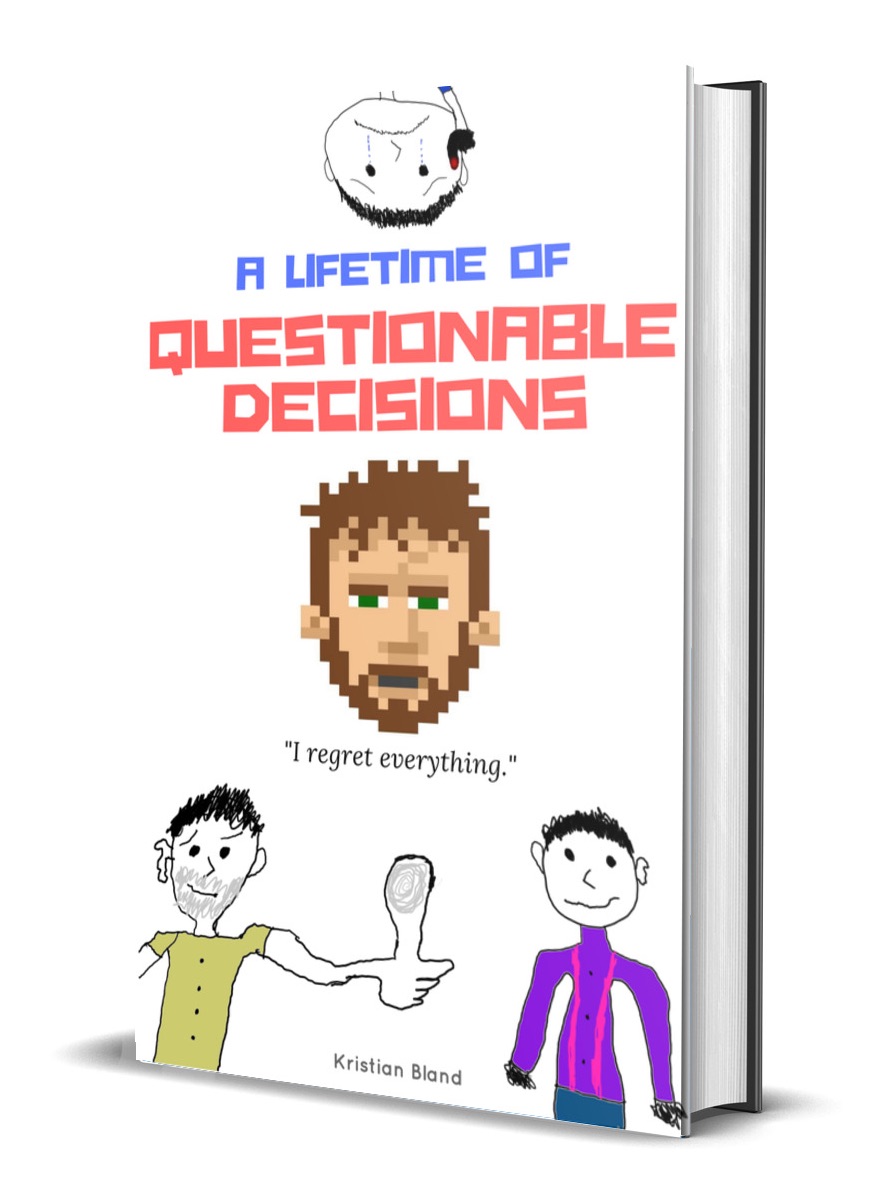





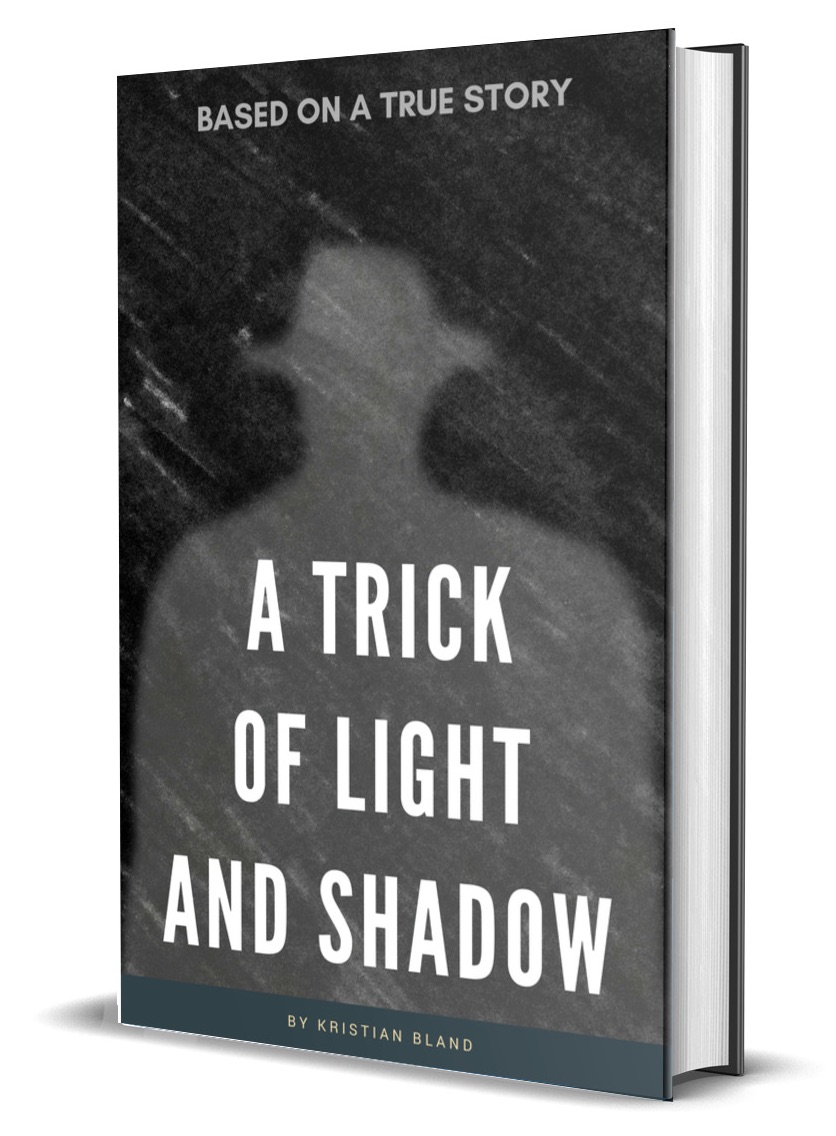
You must be logged in to post a comment.